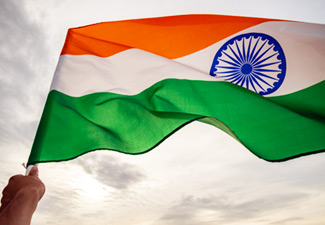India’s impact on global health
January/February 2024 | Volume 23 Number 1
 Credit: Adobe StockIndia supplies 60% of the world’s vaccines and exports vaccines to more than 170 countries globally, earning the country the title, “the world’s pharmacy.”
Credit: Adobe StockIndia supplies 60% of the world’s vaccines and exports vaccines to more than 170 countries globally, earning the country the title, “the world’s pharmacy.”
With the largest population in the world (over 1.4 billion citizens) India also boasts one of the largest diaspora populations. More than 18 million Indians lived abroad in 2022, according to the
UN World Migration Report. India’s diaspora reflects the nation’s rich and diverse cultural heritage and provides an invaluable bridge between home and host societies. Members of the diaspora have built transnational networks connecting cultural, social, and economic interests that impact almost every sector from business to engineering, health care, research, and global health initiatives worldwide.
When it comes to the world of global health and medicine, India is a powerhouse. According to
NIH World Report, since 2016 more than 4,300 health research studies have been funded in India by some of the world’s largest biomedical research funders, including NIH, the European Commission, Institut Pasteur, and the Japan Agency for Medical Research and Development, among other. Between 2022 and 2023, Fogarty funded over 30 studies in the country covering such diverse topics as eye health, mental health, environmental exposures, women’s health, and more.
India also plays a major global role in vaccine and pharmaceutical manufacturing. The nation supplies 60% of the world’s vaccines and exports vaccines to more than 170 countries globally, earning India the title, “the world’s pharmacy.” Having these capabilities allowed India's Serum Institute to manufacture the Oxford-AstraZeneca vaccine in the country during the COVID-19 pandemic through the COVAX program, widely expanding vaccine access to lower-income economies.
Dr. Nandini Kumar, president of India’s Forum for Ethics Review Committees and distinguished scientist chair at India’s
Ministry of Ayurveda, Yoga and Naturopathy, Unani, Siddha, and Homeopathy (AYUSH), notes that as India’s economy continues to grow alongside its positive reputation in health care, there has been an influx of non-Indians as well as Indians returning to the country to study and conduct research across various fields.
India's traditions of Ayurveda, yoga, and other holistic health practices, managed by AYUSH, gives the country a unique place in the global health space. The combination of these practices, along with conventional Western medicine, has started to gain a larger influence in India and beyond. AYUSH released official guidelines for remedies to treat mild to moderate COVID-19 in 2021, and a
recent publication in the
British Journal of Dermatology highlighted successful Ayurvedic treatments for filariasis, a disease caused by mosquito-borne parasitic infection, and lymphedema, swelling in the arms or legs due to a buildup of lymph fluid. Even India's lesser-known influences, like vegetarianism, which has roots in ancient Buddhist practices, are now being touted as a preventive health measure for noncommunicable diseases.
 Photo courtesy of G20 India 2023In 2023, India led the G20 summit, making One Health—a transdisciplinary approach to achieve optimal health outcomes that recognizes the interconnection between people, animals, plants, and their shared environment—a key theme of the conference.
Photo courtesy of G20 India 2023In 2023, India led the G20 summit, making One Health—a transdisciplinary approach to achieve optimal health outcomes that recognizes the interconnection between people, animals, plants, and their shared environment—a key theme of the conference.
As India and its diaspora gain more influence globally, the country continues to engage in health diplomacy by collaborating with international organizations and participating in global health initiatives. Serving as the home base for
WHO’s South-East Asia chapter, India leads the region in developing public health guidelines that are appropriate and adaptable in the South Asian context. In 2023, India led the G20 summit, making One Health—a transdisciplinary approach to achieve optimal health outcomes that recognizes the interconnection between people, animals, plants, and their shared environment—a key theme of the conference.
India isn’t just a provider of medical products, services, and health information technology, it also is a source of talent in the health sector, including nurses, doctors, and researchers, many with influential positions at home and in the West.
Dr. Praveen Kumar, an associate professor at the Boston College School of Social Work, says, “Fogarty’s work is pivotal here, as it invests in capacity building and evidence-based research that addresses critical problems that vulnerable communities are facing in India and across the world.”
India and its diaspora continue to play a pivotal role in shaping the future of global health. Whether through the contributions of health care professionals, advancements in pharmaceuticals, or the promotion of traditional healing practices, India's impact is felt on a global scale. Health practitioners and researchers around the world benefit from the diverse perspectives and expertise coming from the Indian diaspora. Recognizing and harnessing its potential also contribute to developing a robust medical research ecosystem in India.
More Information
Updated February 27, 2025
To view Adobe PDF files,
download current, free accessible plug-ins from Adobe's website.
Related World Regions / Countries